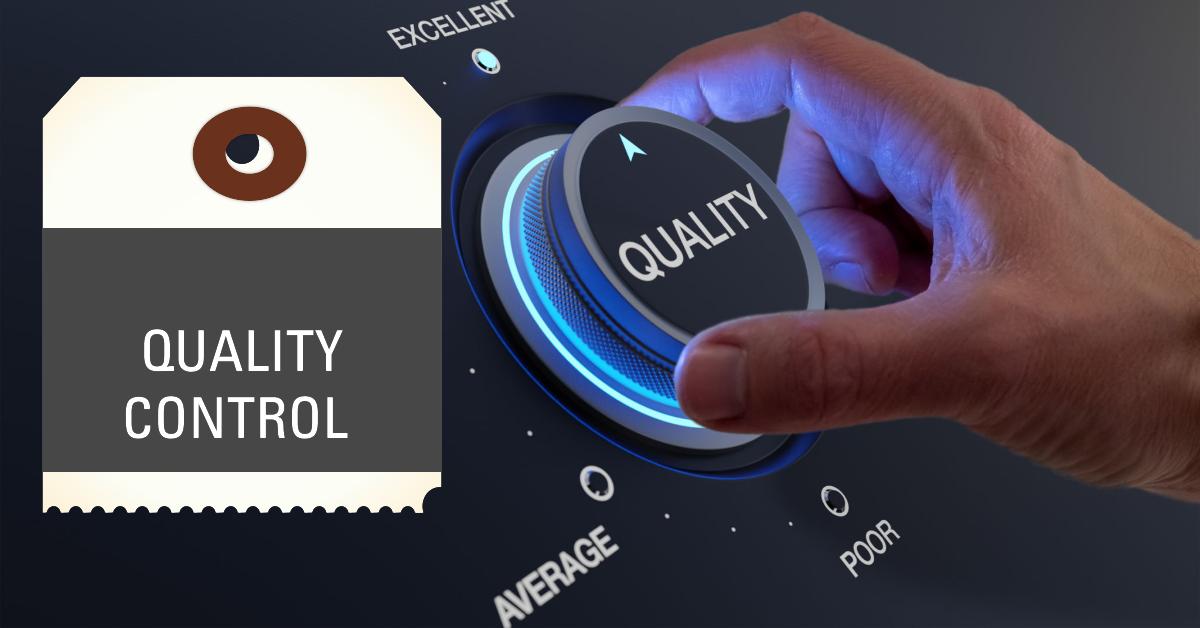Quality control plays a crucial role in manufacturing processes by ensuring that products adhere to precise standards and requirements. In this blog, we delve into the various advantages that quality control brings to the manufacturing industry, highlighting its importance in today's competitive market.
I. Introduction
A. Definition of Quality Control:
Quality control refers to the systematic process of ensuring that products meet predetermined criteria for quality and performance. It involves monitoring and inspecting raw materials, components, and finished products to identify and rectify any deviations from established standards.B. Importance of Quality Control in Manufacturing:
Quality control plays a pivotal role in manufacturing by ensuring consistency, minimizing costs, satisfying customers, complying with regulations, improving efficiency, enhancing brand reputation, managing risks, and boosting employee morale.
II. Ensuring Product Consistency
A. Maintaining Standards:
Quality control measures help manufacturers maintain consistent product quality, ensuring that every item meets the same high standards. By adhering to established criteria, companies can deliver reliable products to their customers consistently.B. Reducing Variability:
Quality control processes also aim to reduce variability in manufacturing, leading to more predictable outcomes. By minimizing deviations in product specifications, manufacturers can enhance product reliability and customer satisfaction.III. Cost Reduction
A. Minimizing Waste:
Implementing quality control measures can help reduce waste in manufacturing processes. By identifying and rectifying defects early, companies can minimize the production of faulty products, thereby saving on material and labor costs.B. Avoiding Rework:
Quality control helps prevent the need for rework or recalls, which can be costly and time-consuming. By ensuring that products meet quality standards from the outset, manufacturers can avoid the expenses associated with correcting errors later in the production cycle.IV. Customer Satisfaction
A. Meeting Expectations:
Quality control is essential for meeting customer expectations regarding product quality and performance. By consistently delivering high-quality products, manufacturers can enhance customer satisfaction and loyalty.B. Building Trust:
Quality control builds trust between manufacturers and consumers by demonstrating a commitment to delivering reliable products. When customers trust the quality of a brand's products, they are more likely to make repeat purchases and recommend the brand to others.V. Compliance with Regulations
A. Meeting Industry Standards:
Quality control ensures that products comply with industry standards and regulations, thereby avoiding potential legal issues or penalties. By staying up-to-date with regulatory requirements, manufacturers can operate ethically and responsibly.B. Legal Requirements:
Failure to adhere to quality control standards can lead to legal consequences, including fines, lawsuits, and damage to reputation. By prioritizing quality control, manufacturers can mitigate these risks and maintain compliance with relevant laws and regulations.VI. Improved Efficiency
A. Streamlining Processes:
Quality control helps streamline manufacturing processes by identifying inefficiencies and areas for improvement. By optimizing workflows and eliminating bottlenecks, companies can enhance productivity and reduce production costs.B. Enhancing Productivity:
Efficient manufacturing processes enabled by quality control measures result in increased productivity and faster time-to-market. By minimizing delays and downtime, manufacturers can meet customer demand more effectively and gain a competitive edge in the market.VII. Brand Reputation
A. Streamlining Processes:
A reputation for quality can differentiate a brand from its competitors and attract loyal customers. Quality control plays a crucial role in establishing credibility and fostering positive perceptions of a brand in the marketplace.B. Differentiating from Competitors:
In today's crowded marketplace, quality can serve as a powerful differentiator for manufacturers. By consistently delivering superior products, companies can stand out from competitors and position themselves as industry leaders.VIII. Risk Management
A. Identifying Issues Early:
Quality control helps identify potential issues early in the manufacturing process, allowing companies to address them before they escalate into more significant problems. By proactively managing risks, manufacturers can avoid costly setbacks and maintain production schedules.B. Preventing Defects:
Preventing defects through quality control measures is more cost-effective than correcting errors after production. By implementing robust quality control processes, manufacturers can minimize the occurrence of defects and ensure the reliability of their products.IX. Employee Morale
A. Empowering Staff:
Involving employees in quality control initiatives can empower them to take ownership of their work and contribute to continuous improvement efforts. By recognizing and rewarding employees for their contributions to quality, companies can foster a culture of excellence and accountability.X. Conclusion
Quality control is essential for ensuring product consistency, minimizing costs, satisfying customers, complying with regulations, improving efficiency, enhancing brand reputation, managing risks, and boosting employee morale. By prioritizing quality throughout the manufacturing process, companies can achieve long-term success in today's competitive market.

